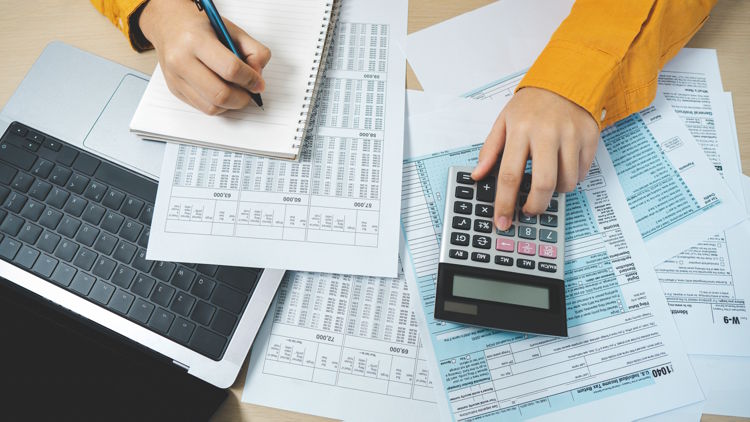Owing back taxes can feel like a heavy burden on your shoulders, and you might be wondering, “Does bankruptcy clear tax debt?” The answer isn’t a simple yes or no, It depends on the type of tax debt, the bankruptcy chapter you file, and specific conditions. At Monohan and Monohan we’ve helped many Ohioans, and Kentuckians tackle tax debt through bankruptcy, and we’re here to break it down in a way that’s easy to understand. Let’s dive into what you need to know!
Can Bankruptcy Wipe Out Tax Debt?
Bankruptcy can clear some tax debts, but not all. The U.S. Bankruptcy Code sets strict rules about which tax debts are dischargeable (can be eliminated) and which are non-dischargeable (must be repaid). The key factors are the type of tax, how old the debt is, and whether you’ve met certain IRS requirements. Both Chapter 7 (liquidation) and Chapter 13 (repayment plan) offer ways to address tax debt, but they work differently.

Let’s explore which tax debts you can clear and how each bankruptcy chapter handles them.
Which Tax Debts Can Bankruptcy Discharge?
Not all tax debts are treated the same in bankruptcy. Here’s a look at what might be dischargeable, focusing on income tax debt (the most common type):
Conditions for Discharge:
- Three-Year Rule: The tax debt must be from a return due at least 3 years before your bankruptcy filing (including extensions). For example, a 2021 tax return due April 15, 2022, could be dischargeable if you file in 2025.
- Two-Year Rule: You must have filed the tax return at least 2 years before the bankruptcy filing. Late returns count, but “substitute returns” filed by the IRS don’t qualify.
- 240-Day Rule: The IRS must have assessed the tax (officially recorded the debt) at least 240 days before filing or not assessed it yet.
- No Fraud or Evasion: The debt can’t involve fraudulent returns or willful tax evasion.
Example: If you owe $10,000 from a 2021 income tax return filed on time, and you file Chapter 7 in 2025 with no fraud involved, that debt could be wiped out.
Non-Dischargeable Tax Debts:
- Recent income taxes (less than 3 years old).
- Payroll taxes or trust fund taxes (e.g., withheld employee taxes if you’re a business owner).
- Property taxes assessed within 1 year before filing.
- Taxes tied to fraud, unfiled returns, or evasion.
Pro Tip: Even non-dischargeable taxes can sometimes be managed through bankruptcy, especially in Chapter 13. Keep reading to learn how!

How Chapter 7 Handles Tax Debt
Chapter 7 bankruptcy can discharge qualifying income tax debts, giving you a fresh start. Here’s how it works:
- Dischargeable Taxes: If your tax debt meets the three-year, two-year, and 240-day rules (and involves no fraud), Chapter 7 can wipe it out, meaning you no longer owe the IRS or state.
- Non-Dischargeable Taxes: Recent taxes, payroll taxes, or fraud-related debts survive Chapter 7. You’ll still owe them after your case, and the IRS may pursue collection (e.g., wage garnishments, liens).
- Automatic Stay: Filing Chapter 7 temporarily stops IRS collection actions (like levies) during the case, giving you breathing room to plan.
Ideal For: People with older income tax debts and limited income who want to eliminate qualifying debts quickly (Chapter 7 cases typically take 4-6 months).
How Chapter 13 Handles Tax Debt
Chapter 13 bankruptcy is a powerful tool for managing tax debt, even if it’s non-dischargeable. Here’s why:
- Repayment Plan: Chapter 13 lets you pay tax debts over a 3- to 5-year plan, making them more manageable. Non-dischargeable taxes (like recent income taxes or payroll taxes) are treated as priority debts and must be paid in full, but you avoid aggressive IRS collections.
- Dischargeable Taxes: Older income taxes that meet the discharge rules may be treated as non-priority debts, potentially paid at a reduced amount or discharged at the end of your plan.
- Remove Tax Liens: In some cases, Chapter 13 can reduce or eliminate IRS tax liens if they exceed your assets’ value, lowering your overall debt.
- Automatic Stay: Like Chapter 7, Chapter 13 halts IRS collections, protecting your wages and bank accounts while you repay.
Ideal For: People with a mix of dischargeable and non-dischargeable tax debts, or those facing IRS liens or garnishments, who need time to catch up.
Key Considerations for Tax Debt in Bankruptcy
Before filing, keep these factors in mind:
- Type of Tax: Income taxes are more likely to be dischargeable than payroll or property taxes. Business-related taxes (e.g., trust fund taxes) are rarely dischargeable.
- Timing: Filing too soon (before the three-year or two-year rules are met) means your tax debt won’t be discharged in Chapter 7. An attorney can help you time your filing.
- IRS Liens: If the IRS has placed a lien on your property, bankruptcy may not remove it unless you address it in Chapter 13 or negotiate separately.
- State Taxes: Kentucky and Ohio state tax debts follow similar discharge rules, but you must ensure state returns are filed and meet timing requirements.
Working with a bankruptcy attorney is crucial to navigating these complexities and maximizing relief.
Tips to Tackle Tax Debt in Bankruptcy
Ready to address your tax debt? Here’s how to get started:
- Consult a Bankruptcy Attorney: A lawyer can analyze your tax debt, check eligibility for discharge, and recommend Chapter 7 or Chapter 13 based on your finances.
- Gather Tax Records: Collect tax returns, IRS notices, and assessment dates to confirm which debts qualify for discharge.
- Complete Credit Counseling: Bankruptcy requires a pre-filing credit counseling course, which can also help you budget for post-bankruptcy tax obligations.
- Explore IRS Options: If bankruptcy isn’t right, ask your attorney about IRS offers in compromise or payment plans as alternatives.
At Monohan & Monohan, we take the stress out of dealing with tax debt by creating a personalized plan for your situation.
Don’t Let Tax Debt Hold You Back
Bankruptcy can clear some tax debts and help manage others, offering a path to financial freedom. Whether it’s wiping out old income taxes in Chapter 7 or restructuring IRS payments in Chapter 13, the right strategy can make all the difference. At Monohan & Monohan, our experienced bankruptcy attorneys are here to guide you every step of the way.

Wondering if bankruptcy can help with your tax debt? Contact us today for a free consultation. Let’s tackle those taxes and get you back on track!

